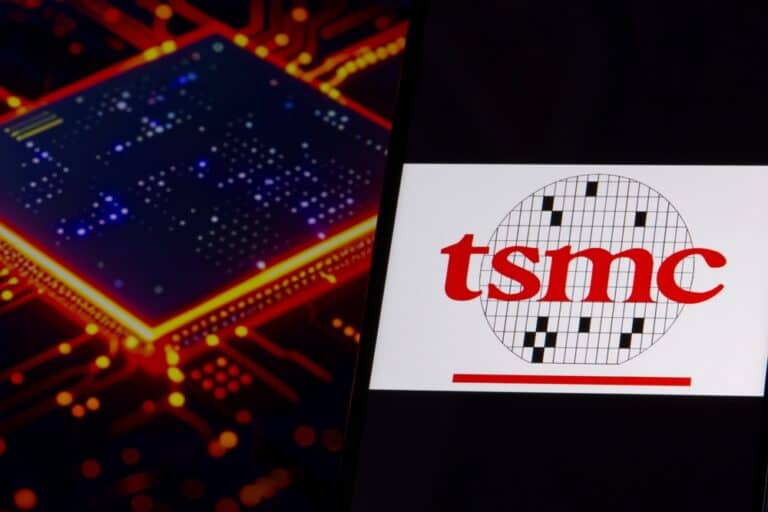Taiwan Semiconductor Manufacturing (TSMC) risks a fine of $1 billion or more to settle a US investigation into export control. According to two insiders, the company made chips that ended up in a Huawei AI processor.
This was reported by Reuters. The American Ministry of Trade is investigating the work of the world’s largest contract chip manufacturer for the China-based Sophgo, according to the sources. The TSMC chip that Sophgo ordered corresponds to one that has been found in Huawei’s advanced Ascend 910B AI processor. The sources wish to remain anonymous because they cannot speak publicly about the case. Huawei is on an American trade list that restricts it from receiving goods made with American technology.
Three million chips
TSMC has produced almost three million chips in recent years according to the design ordered by Sophgo, and these chips presumably ended up at Huawei. This is according to Lennart Heim, a researcher at the Technology and Security and Policy Center of RAND in Arlington, Virginia, who follows Chinese developments in AI.
The sources said that the potential fine of more than $1 billion stems from export control regulations that allow for a maximum fine of twice the value of transactions that violate the regulations.
Because TSMC’s chip production equipment contains American technology, the company’s factories in Taiwan fall under American export control. This prohibits it from making chips for Huawei or from producing advanced chips for Chinese customers without an American license.
According to Heim, TSMC should not have made the chip for a company headquartered in China based on the design intended for AI applications. And certainly not given the risk that the chip could be funnelled to a prohibited entity such as Huawei.
TSMC’s American-listed shares lost nearly 3% of their value and eventually traded slightly lower after the news.
Damage to relations with Taiwan
The moment that TSMC may be sanctioned is crucial for American-Taiwanese relations, as the two countries are renegotiating their trade relationship. This comes after Trump imposed a 32% import tax on products from Taipei last week. Chips are excluded from the tariffs, but Trump has indicated that his team is looking into levies on semiconductors.
In March, TSMC announced in the White House that it plans to invest $100 billion in the United States, including the construction of five additional chip factories in the coming years.
Reuters could not determine how the Trump administration will deal with TSMC or when the case will be settled. Top officials have indicated they want to impose stricter penalties for export violations. A spokesman for the U.S. Department of Commerce declined to comment.
TSMC spokesperson Nina Kao said in a statement that the company is committed to complying with the law. She added that TSMC had not made any deliveries to Huawei since mid-September 2020. TSMC is said to be cooperating with the Ministry of Trade.
Taiwanese Minister of Economic Affairs Kuo told journalists in Taipei that TSMC respects laws and regulations. However, his ministry has not received any notification of a possible fine and cannot comment further.
Washington to enforce more strictly
During a conference in Washington last month, the American minister of trade, Howard Lutnick, spoke about the importance of enforcing export control in the approach to threats from China.
Jeffrey Kessler, who was confirmed as Secretary of Commerce for Industry and Security in March, said during his hearing on February 27 that reports of TSMC chips ending up at Huawei are a major concern and that strong enforcement is essential.
TSMC came under scrutiny for the first time last fall. TechInsights, a Canadian technology research company, took apart a Huawei 910B AI accelerator and found a TSMC chip in the multichip system.
